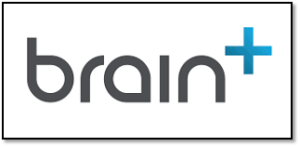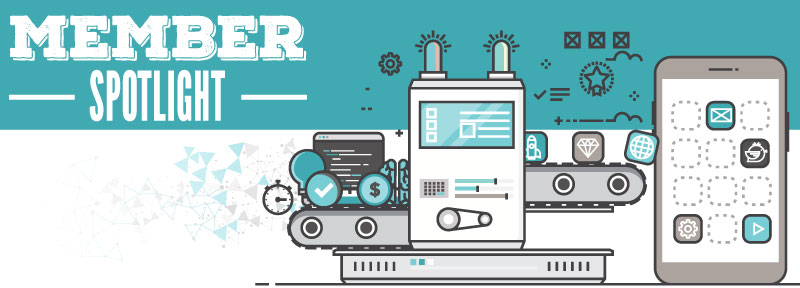While serving as the vice president of marketing for a wind energy company, Kim Baden-Kristensen read a book about neuroplasticity – our brain’s ability to change through growth and reorganization. Having been an avid computer gamer in his younger years and interested in how we develop as human beings and what drives that development, learning about the concept of neuroplasticity made the pieces fall together for Kim. He wanted to combine technology, computer games, and neuroscience to help people and build a sustainable business around this idea. In April 2012, Kim quit his job and started Brain+, and just a short month later brought his co-founder, Ulrik Ditlev-Eriksen, fully on board. Today, Brain+ is still located in Copenhagen, Denmark, and has grown to a cross-functional team of 16 developers, game designers, scientists, engineers, and business professionals who build several different products.

Source: https://www.brain-plus.com
The main products are patient-facing software – two mobile apps called Brain+ Recover and Brain+ Enhance, and a web app for clinicians. The patient-facing Recover app is where Brain+ delivers the products the patient will be using for the rehabilitation of acquired brain injuries or strokes. This app targets patients who received some hospital care and are on the path to longer-term community care with continued recovery efforts. Brain+ Recover offers several types of therapy, such as gamified versions of different cognitive training exercises targeting cognitive improvements such as attention and memory. The Brain+ Enhance app was designed to help users improve and train their vital brain functions with games and education about healthy brain habits. The web app makes it more efficient for clinicians to work with patients, offering a dashboard where the clinician can track progress, make treatment adjustments, and see developments associated with specific treatment methods.
From the very beginning, Brain+ has innovated through collaborative projects with scientists, researchers, clinicians, and other healthcare professionals. The first version of their app was developed in collaboration with the University of Copenhagen and big Danish hospitals. Working directly with clinicians helps Brain+ to run clinical studies and base their work on scientific evidence. As Kim put it,
“We are not the experts on the subject matter, but we are the experts in bringing together the work of all these organisations and channelling that knowledge into digital solutions that we can bring to the healthcare market.”
Currently, they are working on a project related to early detection, treatment, and prevention of dementia and partnering with multiple organisations across Europe, including the European Commission, Oxford University, and the European Brain Council on this project. Through this partnership, Brain+ and Oxford University developed a mobile and gamified version of a highly precise cognitive test. This test can identify cognitive dysfunction associated with Alzheimer’s and dementia and can pinpoint it at a much earlier stage than existing tests. Today, it takes a lot of doctor’s visits and symptoms before patients are sent to an actual dementia diagnostic exam. If there were tools that are easy to use, can diagnose quickly and cheaply, the number of undiagnosed people could be decreased significantly. The earlier the disease is caught; the earlier diagnosed people can adjust their lifestyle and decrease the risks related to the disease.

A look at the Brain+ app. Source: https://www.brain-plus.com
Now, Kim is exploring how to best bring a product like the Brain+ apps to the market. The apps can both be used in their own right, and to target people at higher risk (e.g., those who had a brain injury are at higher risk) who would especially benefit from early detection. The first Brain+ app was more consumer-focused and reached 1.5 million downloads on the app stores, but once they had the resources, Kim and his co-founder chose to focus more on patient-facing products. Their primary goal then went from getting downloads to developing a platform for wide clinical use. So, while you can still go on the app stores and get some version of the Brain+ apps, they now primarily work directly with healthcare providers, professionals, and clinics to focus on how they can best use the app and make it work effectively for their patients. Right now, Brain+ is doing this on a small scale in Denmark, but they are working to become part of the healthcare system and are preparing for international expansion.
Looking back, there have been many accomplishments along the way for Brain+. Kim is most proud of already seeing patients improve and leading a team that has great enthusiasm for combining very scientific aspects with making it fun for the patients to use their products. He’s proud of the holistic approach to health that his company has taken and that they are constantly thinking about the bigger picture and how they can be a piece of the puzzle in solving the greater long-term health challenges we face as a society today.
Brain+ is a great example of how a small company can make a huge impact, thanks to the app economy. They are creating innovative solutions that tangibly help people to improve their health, and we can’t wait to see what’s next for them!
